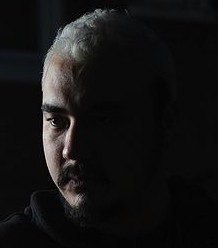



Captain Pike and his crew welcome a Klingon defector aboard the USS Enterprise, but his presence triggers the revelation of some shocking secrets.
Written by Davy Perez
Directed by Jeff Byrd

2x07: Wacky crossover with the comedy cartoon!
2x08: WAR IS HELL, NOBODY IS INNOCENT, MORALITY IS GREY, FORGIVENESS IS QUESTIONABLE, AND THE FRIENDLY DOCTOR MAY OR MAY NOT HAVE DELIBERATELY KILLED A GUY IN COLD BLOOD
2x09: Musical!
Find you a show that can do both.

Buffy
Mom
Once more with feeling
Stargate
Wormhole Xtreme
The tomb
But yeah had to go quite far back
Edit also how could I forget what seems an inspiration of this episode M*A*S*H

Edit also how could I forget what seems an inspiration of this episode MAS*H
Yes, definitely had a MASH vibe.

More MASH the movie than the show, at least not the early seasons.

@Continuumguy @startrek But in its serious mode, without the wacky anti-authoritarian hijinks.

Or Farscape, which sometimes did both in the same episode. Teen Titans could pull it off in a kid-friendly format, too, along with ATLA.

🎵 Through early morning fog I see
Visions of the things to be
The pains that are withheld for me
I realize and I can seeeeeee… 🎵

So… I have loved this entire season but I am not sure about this one.
I’m a vet with PTSD, and I’ll preface my upcoming comments by simply stating that maybe it hit close to home and made me uncomfortable. Maybe dealing with those feelings clouded my perception of the episode. However, the TNG and DS9 episodes dealing with PTSD are some of my favorite and are actually therapeutic for me, so maybe that’s not the case.
Ultimately, the message was dour and I resent it a little since it implies that there isn’t any healing that can occur from this type of trauma, which I believe is completely false. Sure, there might not be any healing for M’Benga as a character, but the thematic message of the episode implied some stuff I’m not really a fan of.
Furthermore, how is Pike supposed to operate as a Captain after both M’Benga and Chapel have committed conspiracy to cover up a murder? I think I will just have to head-canon this episode way. It’ll join “Sons of Mogh” as an episode I just pretend never happened.
I’m fine with a bit of moral ambiguity in Star Trek. But I think this episode crossed a line. Hopefully we will see fallout from this come up later in the show.
I really hate typing this but M’Benga went from possibly my favorite character on the show to someone I sort of resent. And I feel like Chapel is right there alongside him. And it made Pike look ineffectual as a leader- he really should have reprimanded Ortegas.
Plus, back to it again, lying about the blade is conspiracy and it really shattered my perception of those two characters.
Anyways, this is just me rambling. I’ll say something positive about the episode: I enjoyed seeing Spock struggle with seeing Chapel in distress and finally figuring out he needed to step away.

I understand your reaction.
For me, this is in many ways a less dark and cynical take than DS9 In the Pale Moonlight and certainly the Section 31 references.
What was critical here was the difference between the journey of individual traumatized officers who had been forced repeatedly to take actions in wartime that compromised their values, and brought out capabilities they never sought to own, vs Starfleet leadership taking cynical action. It’s also a direct outcome of Starfleet’s cynical actions in having M’Benga develop the serum and then use it.
Starfleet’s postwar directive, and Pike’s insistence on pressing it with his senior officers, created the immediate crisis.
However, we need to take account of the fact that it was the ambassador’s own repeated insistence on confronting, engaging and attempting to recruit M’Benga to assist in his mission that led to the break.
M’Benga seemed to be processing his trauma and managing it as well as he could. He wasn’t at the point of exposing the ambassador’s deceit although he appeared to have been contemplating it.
It was the ambassador’s decision to seek M’Benga out again, in his own safe space, his private office, and own refusal to take M’Benga’s rejection that seemed to take the contemplation to action.
The cover up by Chapel and M’Benga is serious, and in the case of M’Benga this is the second case of his hiding something of significance from his captain. He’s an understandable but grey character, and we will have to see where the show takes him.
In Chapel’s case, we have been shown that her bright effervescence hides much darker experiences. It’s now easier to imagine how she will evolves to the very restrained version of herself in TOS.
I feel this is a very authentic portrayal of the chronic legacy unaddressed of trauma in individuals, how a military service and society will need to move on after a society-wide war when its individuals are not yet ready to do so, and how disasterous the potential outcomes when the divide been societal and individual needs in healing are ignored.
It’s not the 24th century Starfleet we’re seeing where there has been a long period of peace and officers can be treated effectively for trauma before returning to duty and it locks in with chronic effects.
I agree that it does not show Pike’s leadership in a positive light, but I find it realistic. What it does show is the gulf between war veterans and those senior officers who, while veterans of other kinds of conflicts, were not involved.
Starfleet needs senior officers, without direct personal history, like Pike to lead the peace and move forward, just as the western allies needed to find a way with some German leaders and scientists after WW2. But not every individual at the front can withstand the stress of that direct engagement with a former enemy.
Starfleet’s order to force veterans into direct contact with a former enemy was psychologically unhealthy and unrealistic, but a value-focused officer like Pike would not have the insight to see that.
This gulf was underscored at a personal level by Chapel’s conversation with Spock, when she could not share her experience with him and he could not ease her pain. The scene between them was an essential confirmation.
What I found interesting is that Number One had the best read on the situation. She saw the pressure the ambassador was putting directly on the veterans in the crew.
As the executive officer, it’s her job to manage personnel, to assess readiness, to deliver a functioning ship for the captain’s command. She accurately saw the problem and recommended action to mitigate the situation by reducing the time to deliver the ambassador to Starbase 24.
What she was not able to do however was to convince Pike to stand down a bit on Starfleet’s toxic order to require veterans of the war to show acceptance of the ambassador. Nor did we see her attempt to try to convince Pike. He was leading from his values and unable to really take measure of its impact on the individuals.
I find it interesting that this show is giving us episodes that show the negatives of Pike’s command style as well as the strengths. While we’ve seen the negatives in Kirk’s and Picard’s temperament’s and command styles acknowledged in the movies and in Picard, this seems to be the first time we’ve had it done with a hero captain in an ongoing television series when he’s in active command of the ship.

@StillPaisleyCat@startrek.website Although I wish some of Pike’s dialogue had been fleshed out a bit to make him feel like less of a generic foil for M’Benga (especially in their scene near the end), I do really like that they had the lead character of the show be the one who doesn’t get it, and in a way that’s in keeping with his characterization (it ties in particularly well with last season’s alternate-timeline Romulan episode, I think).

I’m not a vet and I don’t have PTSD but my girlfriend and I had some pretty similar issues to you with this episode. I think, thankfully, the episode doesn’t seem to expect us to think that M’benga was “right” at the end, or to be happy about what happened, and the final scene between him and Pike is critically important because I don’t think Pike is supposed to look foolish in that scene. Absent that, this episode would feel really gross to me.
As it is, really the only way I can work with this is knowing that the actual arc here is the enormous one that concludes with Star Trek VI, a movie that I feel only gets more radical with every year that passes and every rewatch I give it. Kirk’s realization that he has to let go of all the pain and anger in that movie and allow the world to move on and healing to begin is, when you get down to it, maybe the most optimistic and important message the franchise has ever really tried to express, and if this episode exists as a “middle chapter” between the war itself and that eventual endpoint…well…I can work with it as that middle chapter. But I still feel pretty crummy about it.

On M’Benga, I can’t quarrel with a thing you say and I haven’t been through what you’ve been through. But I’d encourage you to consider that he’s not a finished product. If this show gets to continue as far as it can, we know he’s in for a lot more change. Maybe he has to heal from here to end up somehow working under McCoy. The state he’s in when he hides this from Pike isn’t the end for him. Maybe this is part of trauma we get to watch him process from here?

So I haven’t been to war, or suffered through it or anything and I can’t say I don’t understand some of the feelings but thank you so much for sharing this. Partially because it makes me feel more hopeful that it isn’t so black and impossible, that it is possible to heal and move on to a degree. I still agree with most of what you said, I felt sad, if not outright disappointed because to me M’benga’s actions aren’t justifiable. It would have been one thing to have Rahl go through Nuremberg style trials or something but the Federation did decide to grant him asylum. I guess I personally dream of a more optimistic world where it might be possible to forgive, but yeah… idk.

I am not a vet, and even I had to turn it off and come back to watch it later when I was prepared. That was super triggering.

Can we just have a quick shout out to Jess Bush who is such a talented actress. Nurse Chapel experiencing RAGE was so convincing!

@stuck Terrific performance, and a great re-imagining of a character that was woefully underserved in TOS.
Elevating a notorious enemy general to the position of ambassador in a handful of years is a total Starfleet move.

This was one of the best “connective tissue” episodes of Star Trek I’ve ever seen.
It provides context and ties together the Discovery Era “T’Kuvma War” with the eventual outcome in “The Undiscovered Country”, while providing a layered, accurate and evocative image of Klingon Honor and “perceived honor” while staying true to the lore and expanding it in meaningful ways. It also has strong shades of “The Siege of AR-558”. It now “makes sense” how the Klingons got from TOS to TNG. Wow!
Dr. M’Benga is fast becoming one of my favorite characters. Robert Wisdom’s Dak’Rah was terrific too!
Heghlu’meH QaQ jajvam
Edit: Spelling, Phrasing

After one of the funniest episode in trek history we got one of the darkest.

Well, the previously inexplicable “inject a bunch of drugs to fight Klingons” scene in the season opener has suddenly paid off.
I have little to say now except that this episode was a seriously heavy hitter. Just… wow. And ouch.

Even with this “backstory” of this green juice, it really isn’t much of a backstory. It’s just explained as some chemical that makes you stronger – it still feels like a cheap plot device, and that action sequence in the season opener was still unexpectedly long.

@williams_482 @triktrek Many fans react badly to the P-12 serum as a lazy plot device, but consider: In key battles, it’d make tactical sense for Klingons to draw Fed soldiers into hand to hand combat, because they’re typically experienced blade warriors. It would then be attractive to the Fed to develop something like P-12 as a counter-tactic. Then consider there is a potential sub-plot exploring the ethics of humans revisiting their Eugenics Wars-era mistakes.

@williams_482 @triktrek (It is mentioned elsewhere that human soldiers in the Eugenics Wars were given drugs to make them better fighters, and human history remembers this as a huge mistake/atrocity).

So this is how M’Benga isn’t the CMO by the time of Kirk? This storyline still has many more seasons to go, it seems.

M’Benga has compiled a hell of a list of justifications for getting demoted already, and (obviously) none of them have actually got him in trouble just yet. Secretly keeping his daughter in the transporter buffer, carrying super soldier serum about his person at all times, killing a Klingon ambassador… suffice to say he’s a bit of a wildcard.

@williams_482 @maddy Demoted?! More like Court Martialed and sent to a mining colony for life :P

Yeah. There is definitely several stories that could play out here, for both M’Benga and Chapel.
Continuity wise McCoy didn’t join the Enterprise until after the first couple of episodes of TOS s1, Mark Piper was the CMO for those so there is definitely a thread they could pick on prior to Kirk taking command of the Enterprise.
For Chapel we know she gets engaged to Roger Korby at some point. Will be interesting to see how they move the character to line up with ‘What Are Little Girls Made Of?’

Not just by the time of Kirk. He’s already gone by the time of “The Cage.”
EDIT: No, I got my timeline screwed up. “The Cage” predates SNW. Oops.

I think that might’ve been the best SNW episode so far. Great guest role, all-round incredible performances from the regulars. Babs absolutely smashed it, obviously. Not going to go all out and say it’s one of the top Trek episodes full stop till I’ve had time to think, but right now I can’t think of many better ones!

This is SNW’s Duet. If it marks a similar increase in quality, then SNW is going to be amazing.

Yeah, I couldn’t stop thinking about DS9’s Duet with this episode. Lots of comparisons, though I think there was a lot more grey-ish morality in the SNW world. War is complicated and it sucks for everyone involved.

Loved the Clint Howard cameo! Pretty amazing to still have actors all the way from TOS appearing!

I hope you relish it as I do!

I screamed when he appeared on screen. It scared my dog.

M’Benga: I can live with it

“… because I can live with it. Computer, erase that entire personal log.”

Could someone explain the food replicator? I thought they weren’t invented yet? Or were they showing an early beta version that can’t get anything right?
PTSD. Like many of us I struggle with it. I was taken how so many on the Enterprise have not gotten any sort of treatment. It also showed Pike as a bit weak of a leader. He should have known to keep certain people away from the Klingon. I did like that he didn’t reprimand Ortega because he understood her feelings. BUT what was he doing inviting her to dinner that night without at least a long talk with her. Pike is wonderful and I’m struggling to understand his sometimes avoiding conflict… even a conflict he could have prevented.
The hand to hand combat was quite good.
Thank you P+ for adding an extra episode this week. I totally expected not to have this one this week.

Could someone explain the food replicator? I thought they weren’t invented yet? Or were they showing an early beta version that can’t get anything right?
That was a “food synthesizer”, a precursor to the TNG era replicator which is more limited in capabilities.

They had something like this in Enterprise. It could only do liquids and it couldn’t replicate the cup, so they had to get the cup out of a little cupboard next to the replicator. Basically a modern day drinks vending machine capable of producing any drink.

I think it even used the same 60’s style sound effect when it worked too.

This episode was like someone said “Let’s do our version of The Undiscovered Country” and then gave it to a bunch of DS9 writers to execute. It starts with very Roddenberrian premise - the promise of a former enemy becoming an ally. But then it brings in the gritty realism of what war is really like, ala “The Siege of AR-558”, and the moral cost that war extracts - that maybe the monster you see is not just in the face of the enemy, but the face you see in the mirror, ala “Duet”, “In the Pale Moonlight” and the other morally grey episodes that often marked the best of DS9’s run.

I watched this immediately after watching a heavier episode of M*A*S*H and well, damn.

This made me want a mash type start trek series about a medical base during the war.

It made me think of mash too, luckily hadn’t just come off watching one but did have some of the feeling of darker episdoes

Loved it. For me, M’Benga is the heart and soul of this show. I think he’s great.